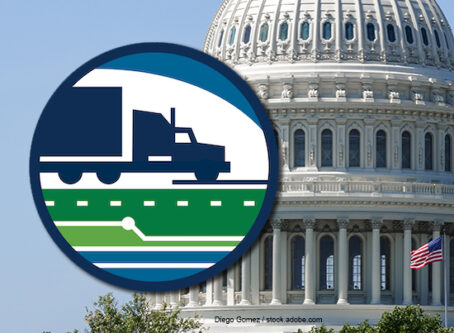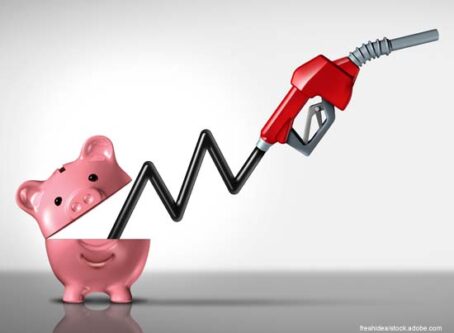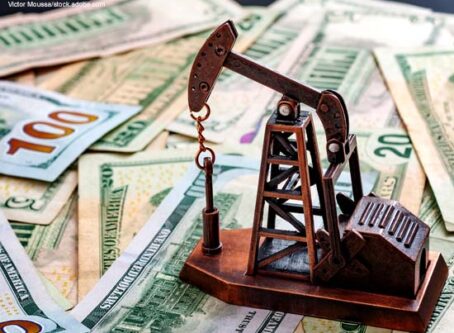Changes to fuel tax rates pursued in 11 states
Talks continue at statehouses around the country to implement changes in fuel tax collections.
The Owner-Operator Independent Drivers Association believes increasing the fuel tax is the most equitable way for states to generate additional revenue.
Below is a rundown of some significant efforts to adjust fuel tax rates.
Alaska
An Alaska House bill would raise the state’s fuel rate for the first time in a half century.
Sponsored by Rep. Andy Josephson, D-Anchorage, the bill would double the 8-cent tax to 16 cents.
The 0.95-cent surcharge added to the tax would also increase to 1.5 cents per gallon.
Josephson said in prepared remarks the current tax rate is well below the inflation adjustment since 1970. He points out when adjusted the tax rate imposed 51 years ago should be set at 54 cents today.
“Alaska’s fuel tax has lost 85% of its purchasing power since it last changed,” Josephson said.
HB104 is in the House Transportation Committee.
Kentucky
Two bills in the Kentucky House are intended to raise fuel rates in the state.
Kentucky now collects 26 cents per gallon on gas purchases. Diesel purchases net the state 23 cents per gallon.
The taxes are linked to wholesale fuel prices, which allows for regular adjustments. However, since 2016 a “floor” was implemented to prevent rates from dipping.
As a result, the rates has remained unchanged.
The bill would remove the link between fuel taxes and wholesale fuel prices.
Instead, the tax rates would be adjusted annually based on a federal construction index. The initial base rate would add 4.3 cents per gallon for gas and 7.2 cents for diesel.
HB508 is in the House Transportation Committee.
A separate bill would raise fuel tax rates and other vehicle fees.
Sponsored by Rep. Sal Santoro, R-Florence, HB561 would raise the gas tax rate by 8.6 cents to 34.6 cents. The diesel rate would be increased by 11.6 cents to 34.6 cents.
An additional surtax of 4.3 cents for gas and 7.2 cents for diesel would also be tacked on to fuel purchases.
One cost reduction tied to fuel tax rates would eliminate collection of the supplemental highway user tax collected on gas and diesel purchases. The fee is a nickel on each gallon sold.
After all the reshuffling, the new gas tax rate would be 33.9 cents and the diesel rate would be 36.8 cents.
The tax rates would also be adjusted annually based on a federal construction index.
Louisiana
On Louisiana state lawmaker is planning to pursue an effort to more than double the state’s 20-cent fuel tax rate.
Rep. Jack McFarland, R-Jonesboro, has indicated he will introduce a bill to increase the excise tax by 10 cents initially. Additional increases of two cents would be made every other year through 2033.
Once fully implemented, the tax rate would reach 42 cents.
Each additional penny increase is estimated to raise about $30 million.
Approval at the statehouse would require a two-thirds majority vote.
Gov. John Bel Edwards and Louisiana Department of Transportation and Development Secretary Shawn Wilson previously have said they support a fuel tax increase. This year, however, both officials have indicated it does not appear to be the right time. They cite the struggling economy.
Massachusetts
Pursuit underway at the Massachusetts statehouse would raise the 24-cent fuel tax rate over three years.
The nearly 50-page transportation bill includes a provision to raise the rate by 4 cents in 2024. Two additional annual 4-cent increases would take effect in 2025 and 2026 when the tax would reach 36 cents.
The measure is SD2315.
Mississippi
A Mississippi House bill has died that sought to authorize a statewide referendum to raise the fuel tax.
The state’s current fuel excise tax is 18 cents. It is unchanged since 1987.
House Ways and Means Chairman Trey Lamar, R-Senatobia, introduced a bill to raise the gas rate by a dime to 28 cents. The diesel tax would be raised by 14 cents to 32 cents.
HB1364 missed a deadline to advance from committee effectively killing it for the year.
Another bill that met its demise in committee called for raising the gas tax rate by 8 cents to 26 cents. HB574 would implement the increases in 2-cent increments over four years.
The diesel rate would be increased by 12 cents to 30 cents over the same time. The increases would be implemented in 3-cent increments.
Missouri
In Missouri, as soon as this week the full Senate could take up for consideration a fuel tax increase. The state’s 17-cent fuel tax rate has remained unchanged since the mid-90s.
According to a fiscal note attached to the bill, the fuel tax raised $698.7 million in fiscal year 2020.
State officials report the state has between $8 and $10 billion in unfunded needs for the transportation system.
To address the shortfall, the Senate Transportation Committee voted to advance an amended bill to raise the fuel tax rate by 10 cents to 27 cents per gallon.
The increase would be phased in over five years. Starting Jan. 1, 2022, the tax would be increased by 2.5 cents every two years until 2027.
The dime increase is estimated to raise an additional $411 million annually.
Sponsored by Senate President Dave Schatz, R-Sullivan, SB262 includes the option for Missouri residents to apply for an exemption and refund.
If approved by the Senate, the bill would move to the House for further consideration.
Montana
Months after voters in the city of Missoula approved a local gas tax, the House Transportation Committee this week is scheduled to consider a bill do away with the tax increase.
Rep. Matt Regier, R-Kalispell, is behind a bill to repeal the 2-cent local excise tax on gas purchases. Diesel fuel was excluded from the increase.
Critics of the gas tax increase say it is the wrong time to impose more tax on motorists. Others have said the county should take steps to better manage revenues already available.
To make matters worse, critics have said the local tax is simply piling on when you take into consideration the recent statewide fuel tax rate increases.
The Montana Legislature approved a fuel tax increase four years ago to eventually raise $49 million annually for state and local roadways.
The state’s gas tax rate has since increased by 5 cents to 32 cents. Another penny increase will be phased in through 2023.
Similarly, the state’s diesel rate has since increased by about 1.5 cents to 29.45 cents. Another one-half cent increase will be implemented over three years.
The bill is HB464.
New Mexico
Time is running out on a New Mexico Senate bill that would raise the state’s excise rates.
The state now collects a 17-cent excise tax on gas and a 21-cent tax on diesel.
A bill from Sen. Bobby Gonzales, D-Ranchos de Taos, would raise both rates by a nickel over five years. At that time, the gas rate would be set at 22 cents and the diesel rate would be 26 cents.
SB168 has advanced from one Senate committee and awaits consideration in a second committee. The Legislature is scheduled to wrap up their work for the year next week.
According to a fiscal note attached to the bill, the tax increases would raise $63.6 million by fiscal year 2025 for state and local roads.
North Dakota
A bill halfway through the North Dakota House would increase the state’s fuel tax rate. Owners of alternative fuel vehicles would also pay more.
The state now collects 23 cents per gallon on diesel and gas sold.
Sponsored by Rep. Vicky Steiner, R-Dickinson, HB1464 would increase the excise rate by 3 cents to 26 cents. The original version called for a 6-cent increase.
Additionally, the $120 and $50 road use fees for electric and hybrid vehicles would be increased to $200 and $100 respectively.
The bill is in the Senate Finance and Taxation Committee.
West Virginia
One West Virginia lawmaker wants to give truck drivers a break on fuel taxes.
The state now collects a 20.5-cent excise tax on fuel purchases.
Sponsored by Rep. Tom Fast, R-Fayette, the bill would require a refund for diesel fuel consumed by a commercial vehicle for operation outside the state.
HB2523 is in the House Technology and Infrastructure Committee.
Wyoming
A bill in the Wyoming House to raise the 24-cent fuel tax rate has taken its first step forward.
The House Transportation Committee has voted to advance a bill to tap the funding source to enhance support for state and local road projects. Specifically, HB26 would increase the tax on gas and diesel by 9 cents to 33 cents per gallon. The tax on alternative fuels would be raised by the same amount.
A change made in committee would phase in the increase over three years.
Each penny increase is estimated to raise $6.7 million yearly.
The Wyoming Department of Transportation reports $135.6 million in unfunded operating expenses. The amount includes $72.3 million in construction and maintenance.
The bill would raise an estimated $60.3 million annually for state and local roads, according to information provided by the agency.
A fiscal note attached to the bill shows that the state’s highway fund would collect about $40.2 million. Another $14.1 million would be allotted to county roads, while cities and towns would get $5.9 million. The remaining $1.2 million would be set aside for state parks.
The bill has moved to the House floor. LL
More state trends
Keith Goble, state legislative editor for Land Line Media, keeps track of many trends among statehouses across the U.S. Here are some recent articles by him.









